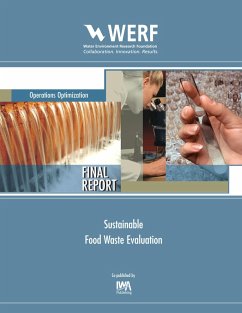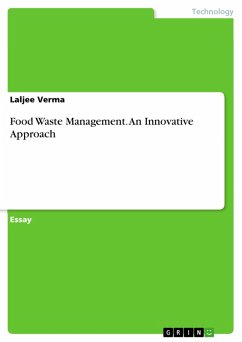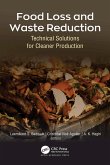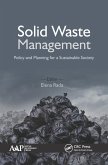Available as eBook only.
According to the United States Environmental Protection Agency (US EPA, 2011), over 34 million tons of food waste are generated annually in the United States. The agency further reports that almost all of this waste is landfilled. Based on these estimates, food waste is the second greatest category of waste generated in the United States, only behind paper. Given the mass of food waste generated, determining the economic and environmental costs and benefits of different food waste management methods should be a significant priority. The purpose of this research is to estimate economic and environmental costs and benefits of different food waste management alternatives.
This study examined food waste management, taking into special consideration the processing of food waste introduced into the wastewater system through residential food disposers, at a commonly configured treatment plant and food waste that is hauled directly to anaerobic digesters at the same treatment facility. The researchers also examined common practices for food waste management, such as landfilling, composting and mixed waste recovery. The study assessed economic, environmental, social, and operational considerations of food waste management.
To maintain consistency throughout the analysis, assumptions that impacted multiple alternatives (e.g., equipment demands, fuel characteristics, and general costs) were made common to all the alternatives. In order of preference, assumptions were based on vendor data, literature values, and professional experience. All of the food waste management scenarios were based on a representative community of 100,000 residents located in North America. The research examined the impacts to a representative wastewater treatment plant, assuming an increased use of food waste disposers throughout the service population and the co-digestion of post-consumer food waste hauled directly to anaerobic digesters located at wastewater treatment plants. The focus of the research was on residential food waste generation and does not apply to commercial or industrial food waste generation.
Dieser Download kann aus rechtlichen Gründen nur mit Rechnungsadresse in A, B, BG, CY, CZ, D, DK, EW, E, FIN, F, GR, HR, H, IRL, I, LT, L, LR, M, NL, PL, P, R, S, SLO, SK ausgeliefert werden.









